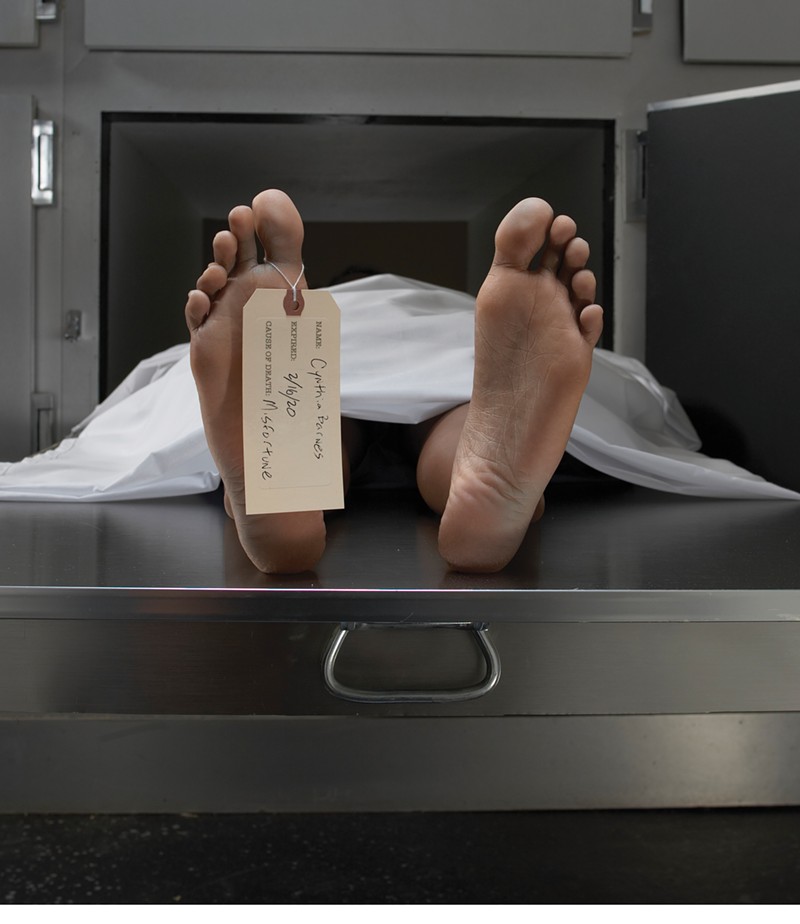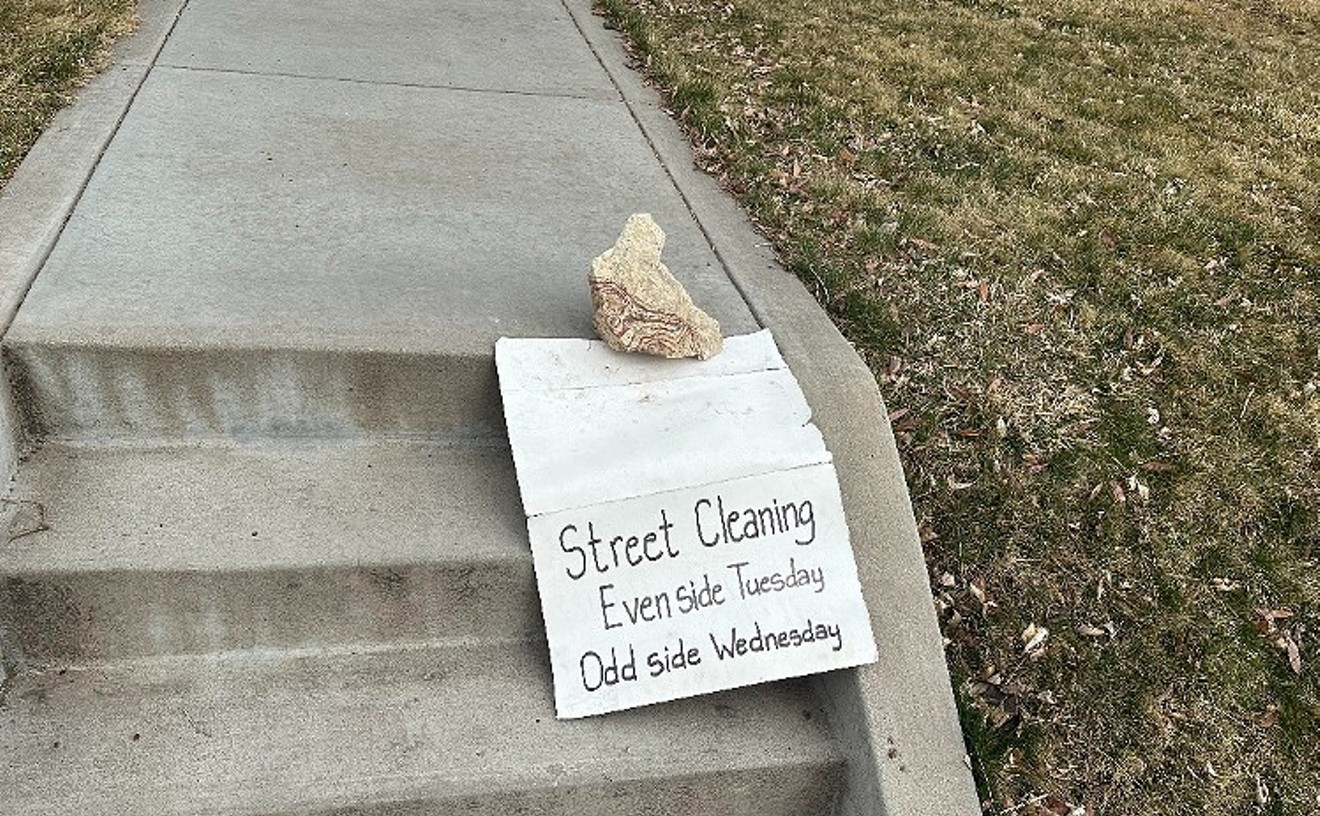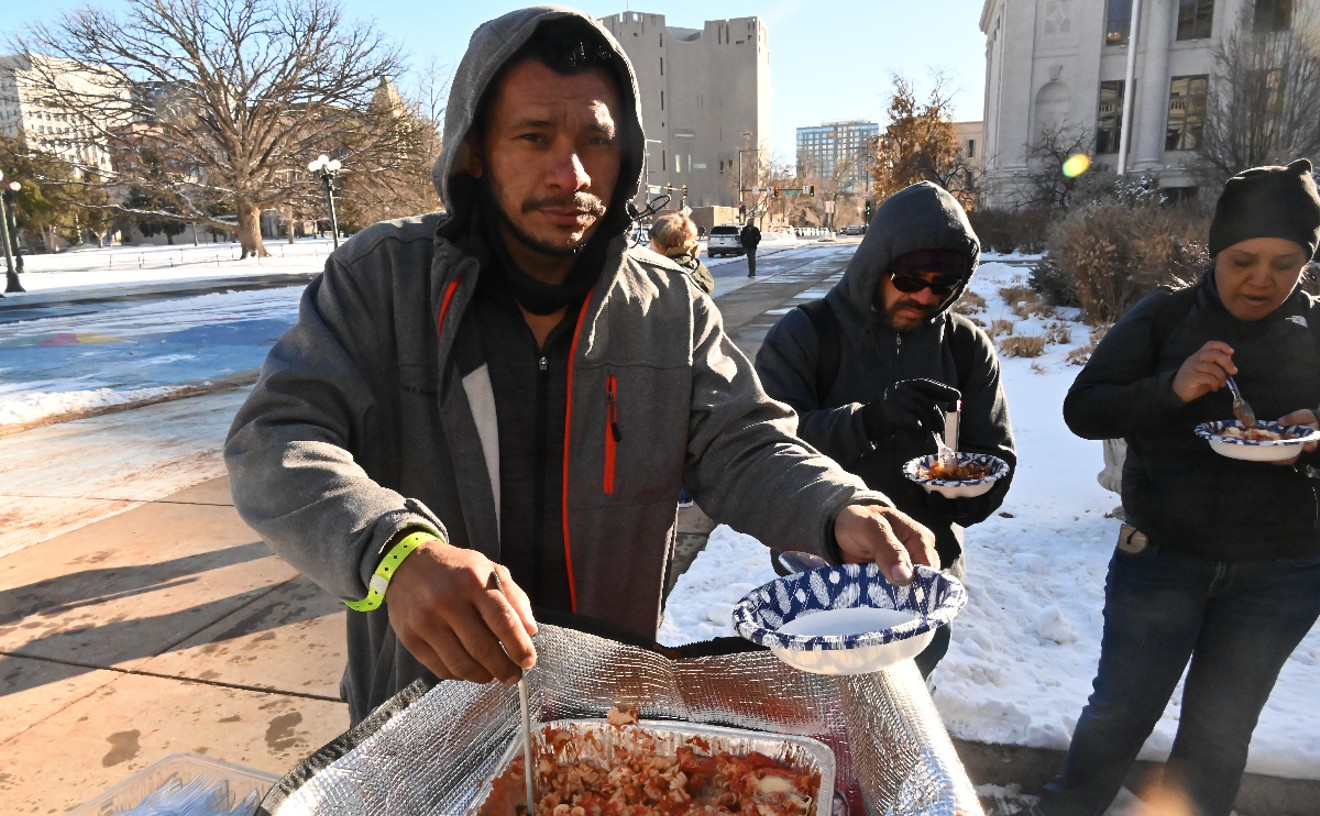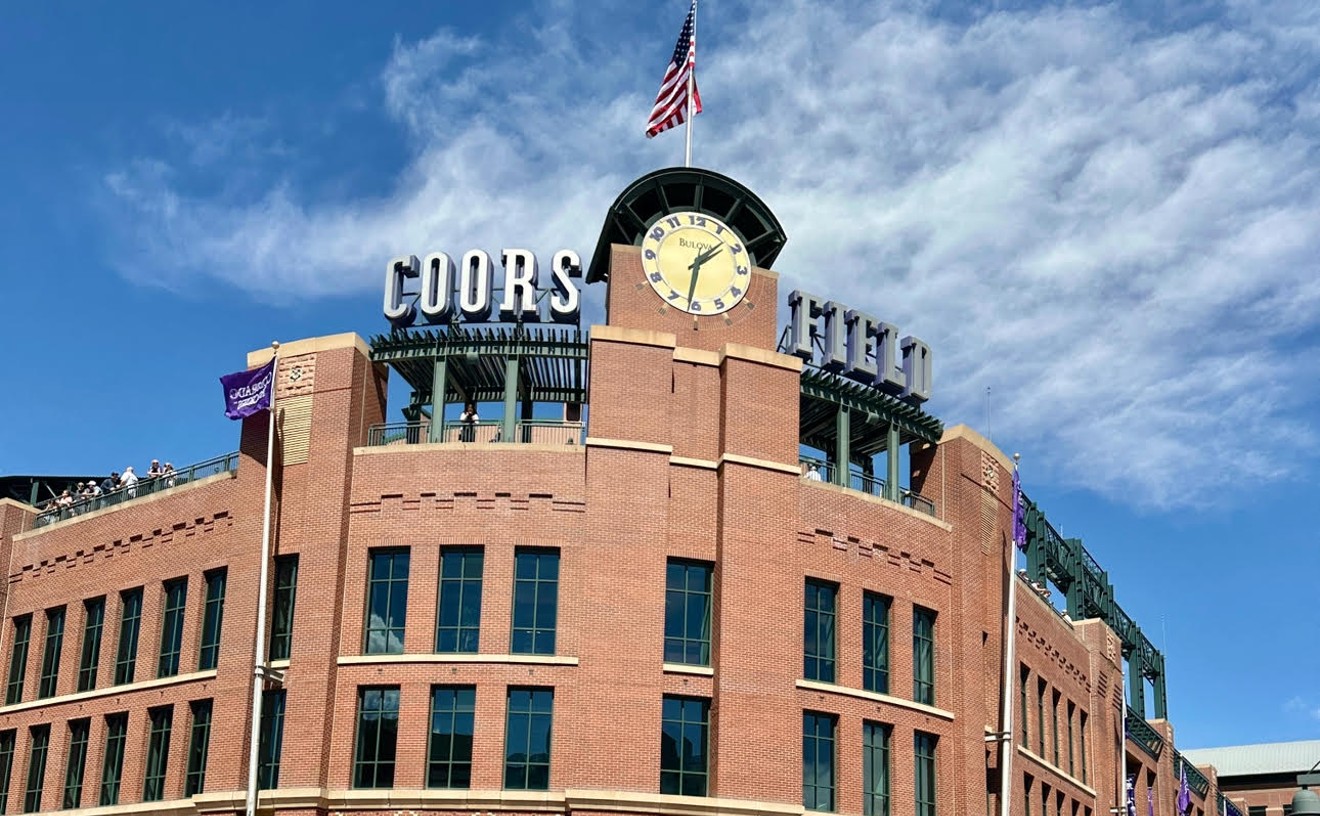Unfortunately (for me), she didn’t. I materialized early — too early — and watched the whole thing. The ride in the ambulance. The emergency room where she awkwardly asked not to be treated by her ex-boyfriend...a cardiologist at that very same hospital. (Oh, Former. I myself almost died of embarrassment.) And finally, three days in intensive care and a diagnosis of ‘Not Dead Yet.’
Now I’m stuck floating around Capitol Hill, and even with Colfax, a ghost can get bored. So I started thinking: What would have happened if my Former hadn’t dialed 911? If she’d just slumped over, Googling ‘symptoms of a heart attack’? I’d have shown up and scooped her spirit, sure; that’s my job. But what would have happened to her physical body? Who would have found it and notified any next of kin? How long before the landlord put her stuff on the curb? Former didn’t have a will. (She does now.) What would have become of her incredible collection of vintage concert T-shirts?
And who does a girl have to haunt to get some answers around here?
Death by the Numbers
When you think about it — and the living don’t like to — everyone ‘dies alone.’ The term can cover a lot of ground. Many people die attended...by nurses or loved ones (or that guy with the ax that they met on Craigslist). During the early days of the pandemic, a lot of people with large and otherwise loving families passed in isolation because of COVID-19 restrictions.Dying alone, by definition, doesn’t mean passing away friendless, leaving only a cat or two to eye your eyeballs. (Fun fact: Fluffy will probably go for the cheeks first.) Denver is an extremely social — and extremely solo — city. The Census Bureau’s Current Population Survey (CPS) shows that nearly 40 percent of households in Denver have only one resident, and that number almost doubles in the downtown area. And the Centers for Disease Control say that 31.70 percent of deaths occur in the home. While many of these are anticipated deaths from chronic, long-term illnesses, household injuries, accidental poisonings (weird, right?), suicide and drug overdoses fall into that category as well. The Denver Office of the Medical Examiner (OME) reported 5,500 deaths in 2020. Some took that solitary journey without the chance to say “goodbye.” To anyone.
Home Alone
People who live alone and — unlike my selfish Former — find themselves actually dead in Denver will need to be discovered. The pandemic has made that more difficult, too: Remote workers are less likely to be missed, and daily routines (like a morning coffee at the corner shop) have been disrupted as well. But eventually, friends, relatives or frenemies on the group chat will notice that you’re not responding, and someone’s going to investigate.Discovery may come in the form of a wellness check from the Denver Police Department. When the DPD finds a dead person, a medical examiner is called to the scene. “Every home death that isn’t attended by a physician is investigated,” says Steve Castro, manager of operations for the OME. In 2020, such scenarios accounted for 1,365 visits. There are five categories of death: natural, accidental, homicide, suicide and undetermined.
If your death is determined to be natural, your driver may be Kyle Williams. Williams, 29, works as a transporter for SI Funeral Services, which contracts with a number of local funeral homes. He enshrouds the deceased and chauffeurs them in a discreet minivan to a cooled holding facility to await burial or cremation. Williams likes his job and takes it seriously. “No matter where you live, people are gonna croak,” he says, “and it needs to be addressed. I’m able to give people a dignified exit, and feel useful to the community in a way that’s sort of timeless.”
Every manner of death except natural warrants investigation, and that means the body takes a trip to the coroner’s office. Besides conducting autopsies, the OME is tasked with locating and notifying the next of kin — a process that has sometimes taken years. “It would be really helpful if people kept an emergency contact list on their refrigerator or somewhere in plain sight,” says Castro. “We want people to know about their loved ones as soon as possible, and it isn’t always easy.” An investigator will often search the residence, looking through paperwork for clues. “It’s not as hard as it used to be, with the internet and open-source tools,” notes Castro. “But common names, or someone who’s visiting from abroad, can complicate things. We’ve had death notifications translated into multiple languages, trying to be sure we could reach people.”
Family trees on sites like Ancestry and DNA can assist, too. The National Missing and Unidentified Persons System (NAMUS) offers forensic services, including DNA analysis to identify people and locate their next of kin. Matches aren’t instantaneous, Castro adds: “It took several years, but DNA finally identified a woman for our office just last week.”
While the OME successfully identified every person brought to the office in 2020, 75 bodies remained unclaimed. If no one comes forward, those remains will eventually be cremated or settled in cemeteries. For historical context, it’s estimated that as many as 2,000 unclaimed bodies may still lie under the former cemetery that is now Cheesman Park.
While Cheesman is no longer accepting new residents, Denver’s oldest operating cemetery is. Founded in 1876 — the same year Colorado became a state — Riverside Cemetery sits on the banks of the South Platte River and is home to many of the city’s historic figures, including Augusta Tabor, divorced wife of mining millionaire Horace Tabor; African-American business leader Barney Ford and his wife, Julia; three territorial governors and a handful of mayors. Though the once-lush grounds were contaminated over the decades by neighboring refineries, ghosts still enjoy gathering around miner Lester Drake’s monument — a limestone miniature of the cabin where he panned for gold in Black Hawk.
Haunted Houses
Many Denver residents face death and rent increases with (almost) equal dread. But for Formers who were renters, even the dead can still find themselves at risk from vampires. It’s said you can’t get blood from a stone — but legally, technically, you can get rent from a dead person. In Colorado, death doesn’t automatically grant sweet release from a lease.Check out these gems from my Former’s current contract:
“...you won’t be released from this Lease Contract for any reason—including but not limited to ... loss of employment, bad health, or death.”
“An apartment is also ‘abandoned’ 10 days after the death of a sole resident. Surrender, abandonment, or judicial eviction end your right of possession for all purposes and gives us the immediate right to: clean up, make repairs in, and relet the apartment; determine any security deposit deductions; and remove property left in the apartment. Surrender, abandonment, and judicial eviction affect your rights to property left in the apartment.”
Colorado law is surprisingly opaque on the subject of how landlords should handle a dead person’s belongings. “In my experience, different landlords do it very differently,” says Les Ebert, supervisor of the Housing and Homeless Prevention Unit of Colorado Legal Services. “For instance, the Denver Housing Authority immediately locks the unit until they have an order from the court.” That order, JDF 999, is commonly called a small estate affidavit. A notarized statement swearing that the person has the right to remove possessions and access bank accounts and safety deposit boxes, it can’t be filed until ten days after a person’s death.
Attorney Debbie Wilson has represented landlords for 28 years. A managing shareholder at Springman, Braden, Wilson & Pontius, she swears that putting a deceased tenant’s belongings on the curb is not something landlords want to do. “In my career, I can count on one hand the times I’ve seen it happen,” she says. “And only when every other avenue has been exhausted...when there’s no one to claim the property or the next of kin can’t or won’t come and remove it.”
Often, a key is key. “Property owners may not want the liability of allowing someone to enter,” Wilson explains. “But if an emergency contact already has a key, that’s often enough to grant access.”
At least no Denver renter need worry about meeting the fate of Joyce Carol Vincent. The 38-year-old British woman died in her apartment, her body undiscovered for three years until someone came to check about unpaid rent. Try not paying your rent for three months in Denver. Ghost’s honor: You will be discovered. Just be sure to say “Boo!”
Before You Go
Before you become a Former, take a few simple steps to make things easier for the people you leave behind.Have emergency contacts listed with your landlord and also programmed in your phone. While iPhones allow ICE contacts to be accessed even when the phone is locked, Android devices vary by model. Make sure that someone knows where you keep important papers such as a will, insurance policies, and deeds and titles to properties. If you run, hike or cycle without a wallet, a RoadID or similar bracelet listing medical info and an emergency contact is always a good idea.
Not everyone is lucky enough to just keel over while watching Things to Do in Denver When You’re Dead (that movie could bore almost anyone to the Great Beyond, although just the sight of Andy Garcia could revive them). Advanced medical directives let you choose what kind of care you’ll receive and who will make decisions when you can’t. (Pro tip: Don’t choose the cousin who’ll smother you at the first sign of a bad cold.) Medical Durable Power of Attorney, living wills, CPR directives and Medical Orders for Scope of Treatment (MOST) forms are available online.
You don’t need to be a Rockefeller to have an estate: That PS4 totally counts as an inheritance. According to the Denver Bar Association, regardless of whether you have a will, if you have $50,000 or less in personal property (that includes bank accounts and cash) and no real property, your devisees or heirs can collect your assets by using an affidavit and without having to open a probate action through the court. That affidavit is the JDF 999, and you can download the form at courts.state.co.us. More information about estates and probate in Colorado can be found at denbar.org/public/public-legal-information/probate-in-colorado.
Any future Former with significant assets should consult an attorney and draw up a will. While an unwitnessed holographic (handwritten) document is legal, it’s also wide open to an expensive challenge if your other cousin really wants that PS4. A DIY template can be filled out at eforms.com/wills/colorado-last-will-and-testament-template.
And in the End
Scattered, crispy, or melted: Those choices aren’t just for hash browns. There are a number of ways to legally dispose of a body in Colorado, and the choice is yours...if you remember to make that choice before you go. If not, both Denver Human Services and the State of Colorado can assist with funeral and burial/cremation expenses for low-income residents who did not plan ahead.Those who do can drop ten grand on a high-end funeral at a place that looks like a country club, or spend $495 for a cremation at the Rose Lady on West Colfax and then spring for cocktails at Linger, a hip bar in the former Olinger mortuary. If earth or fire aren’t your signs, water cremation (aka alkaline hydrolysis) can melt you down to bones, and the resulting 300 gallons of water can be used to fertilize a tree. Body composting just became legal in this state, too.
And if you’re lucky enough to have lived in Crestone, you can subsequently leave the earth via an open-air funeral pyre, spirit billowing up to the sky.
See you soon.













